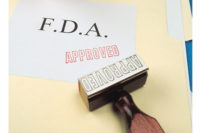The sentences handed down in September to two Georgia peanut butter manufacturers for distributing Salmonella-tainted peanut products should be a profound lesson for not just the food industry, but for the industry in general. The lesson is a simple one, yet one with enormous consequences in the wake of new federal food-safety regulations now being implemented. The lesson: When it comes to product safety, the culture of enabling wrongdoing will end up costing you plenty.
The two Georgia executives, brothers Stewart and Michael Parnell of Peanut Corporation of America, received prison sentences of 28 and 20 years, respectively, for their role in a deadly Salmonella outbreak that cost nine people their lives and sickened hundreds more. The plant’s quality control manager, Mary Wilkerson, received a five-year prison term. (All are appealing their sentences.)
The trial of the Parnells and Wilkerson marked the first time U.S. food producers stood trial on criminal charges in a food-poisoning case. U.S. attorney Michael Moore, who prosecuted the case, called the convictions “a landmark with implications that will resonate not just in the food industry, but in corporate boardrooms across the country.”
The Parnells apparently felt emboldened to ignore safety regulations. They knew they were putting consumers at grave risk, but went ahead and placed dangerous products into the market. After the deaths and injuries mounted, they tried to dodge responsibility by covering their tracks with false records and deleting emails.
How does our society overcome such a blind eye to wrongdoing? As it relates to the food industry, the answer appears to be to place responsibility for ensuring safe food production and distribution on senior management.
In this regard, the context in which the Parnell case played out is important in that it paralleled the FDA’s wholesale rewriting of food-safety regulations, a process that culminated in the Food Safety Modernization Act of 2011 (FSMA). New rules under the act are now rolling out and, as most commenters (including me) have explained, FSMA alters the dynamics of food safety by placing a greater responsibility to ensure safe food on the manufacturers of products. Preventive measures intended to resolve problems on the production floor are the new watchwords for the industry.
Additionally, the FDA appears to have resurrected a decades-old Supreme Court decision—the so-called Park Doctrine—that held the CEO of a Baltimore supermarket company liable for sanitation violations at several warehouses. The executive appealed the conviction, arguing that he wasn’t personally involved in causing the violations, but the Supreme Court ruled that he could be prosecuted.
This represented a significant change in the philosophy of culpability, and FSMA has adopted the Park Doctrine to make food-manufacturing executives personally responsible for safety failings in their watch. Due to federal budget cutbacks at the federal and state levels, plant-level inspections have long been inadequate. But until proposed FSMA rules began circulating for industry comment, the prevailing idea was that regulation was more a matter of voluntary commitment rather than strict enforcement. Now, although enforcement funding remains paltry, the FDA’s new approach puts industry on the hot seat to maintain safe production and handling procedures—or else.
Hopefully, the case of the contaminated peanut butter will be looked upon in retrospect as a rare case of intentional wrongdoing. Yet, at least for the food industry, new regulations and a stiffer resolve on the part of prosecutors are probably the best insurance to put an end to such careless abuse of the public’s trust.





